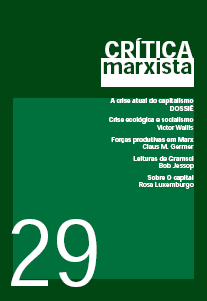Abstract
The financial crisis, which broke out with the intensity of a tropical hurricane in the second half of 2008, generated a state of absolute uncertainty regarding the future of the global order. Distrust in the solidity of financial institutions, caused by the chain failure of banks that until then seemed unshakable, triggered a virulent credit crisis that quickly disorganized the relations of production and circulation that supported the expansion of the world economy. By exposing the extraordinary fragility of the international monetary system and the precarious foundations that support the globalization of business, the crisis undermined the parameters that guided economic calculations, leaving the capitalist system under the threat of an unprecedented depression. The speed and virulence with which financial problems became economic problems in the strict sense, evident in the cyclopean difficulties that threaten the survival of the largest industrial and commercial corporations on the planet, and in the exponential expansion of unemployment throughout the world, reveal the seriousness of challenges that must be faced.
References
SAMPAIO JR., Plínio de Arruda. Crise e barbárie. Crítica Marxista, São Paulo, Ed. Unesp, n.29, 2009, p.41-47.

This work is licensed under a Creative Commons Attribution 4.0 International License.
Copyright (c) 2009 Plinio de Arruda Sampaio Jr.
